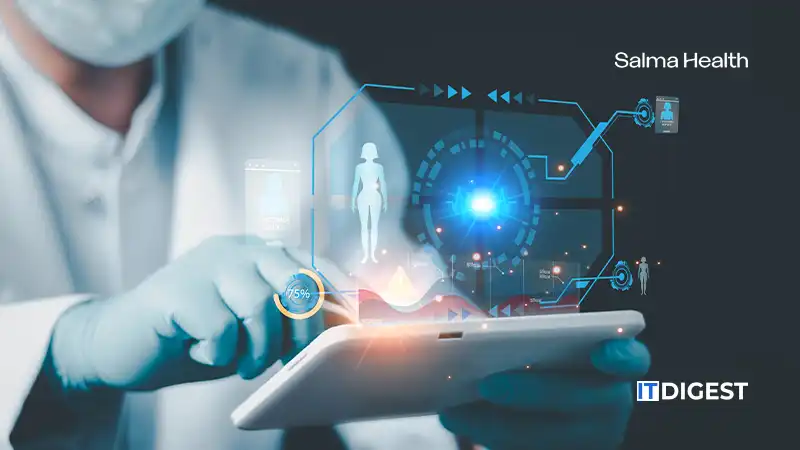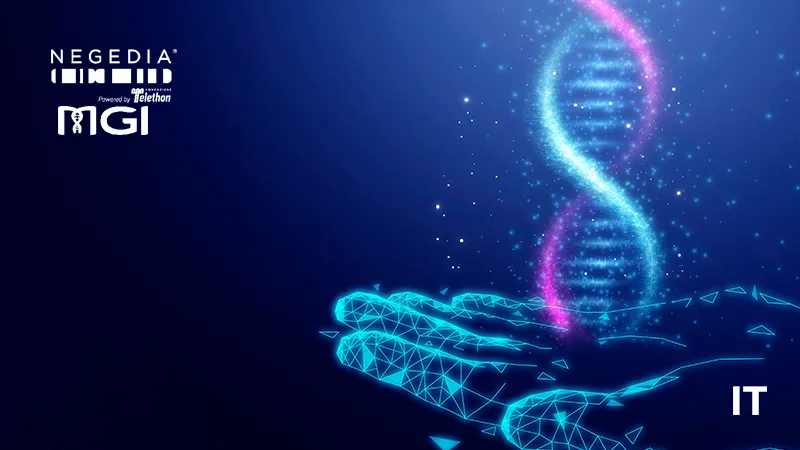MGI Tech, a company dedicated to developing core tools and technologies that drive innovation in life sciences, announced a partnership with Negedia, an initiative born from Fondazione Telethon to expand access to DNBSEQ™-powered genomic sequencing and Stereo-seq spatial transcriptomics for precision medicine and biomedical research in Italy.
Negedia focuses on understanding an individual’s genetic and molecular characteristics to make informed decisions about prevention, wellness and treatment. It is dedicated to researchers, specialists, and laboratories, offering innovative solutions that provide immediate answers for research and diagnostics.
Under this collaboration, MGI will provide advanced DNBSEQ™ sequencing technology to expand Negedia’s operational and analytical capacity for sample. Negedia has acquired MGI’s DNBSEQ-T7 high-throughput sequencing platform, which enables high-resolution spatial transcriptomic analysis, allowing for the acquisition of the entire transcriptome-i.e., the RNA molecules transcribed from the genome—without compromising tissue integrity. The DNBSEQ-T7 platform will allow Negedia researchers to explore disease mechanisms at an unprecedented level, opening new research pathways.
“At MGI, we believe that cutting-edge technology is essential to enhancing scientific research outcomes. That’s why we are proud to collaborate with Negedia, providing them with advanced sequencing tools that help researchers push the boundaries of science. In rare disease research and precision medicine, understanding gene expression in the spatial context of tissues is essential. Until now, achieving this level of detail was extremely difficult. Thanks to our technology, we can now overcome this limitation, giving Negedia scientists a new tool to deepen biological and molecular understanding of various diseases”, said Dr. Christian Zimmerman, Vice President of Sales, Europe and Africa at MGI.
STOmics proprietary Stereo-seq (SpaTial Enhanced REsolution Omics – sequencing) technology, distributed by MGI, is a revolutionizing spatial multi-omics technology for various scientific research and clinical applications, including oncology: studying the tumor microenvironment and cellular interactions within neoplastic tissues; neuroscience: mapping cellular organization in brain tissues and studying neurodegenerative diseases; development and embryology: monitoring spatiotemporal gene expression during tissue and organ formation; and precision medicine: identifying new biomarkers for diagnostics and targeted therapies.
Also Read: Illumina to Acquire SomaLogic, Boosting Proteomics Push
Negedia is a Certified Service Provider for Stereo-seq technology, an officially certified service provider for STOmics, ensuring the highest standards of quality and reliability. To guarantee top-quality analyses, the researchers have undergone a rigorous certification process, which included setting up dedicated laboratories equipped with specific instruments for STOmics protocols, advanced team training in cryosectioning and sample preparation, and the optimization of procedures to deliver reliable and reproducible results.
“Negedia is enthusiastic about commencing this collaborative endeavor with STOmics and integrating their Spatial Transcriptomics technology into our research toolbox. This entirely unbiased methodology facilitates discovery and exploratory analyses” stated Prof. Davide Cacchiarelli, Chief Scientific Officer at Negedia.
Spatial transcriptomic analysis is made possible by the Stereo-seq technology developed by STOmics, with whom MGI has partnered to implement the DNBSEQ-T7 platform. Stereo-seq is a sequencing based and an innovative technique offering nanometer-scale resolution and centimeter-level field-of-view (up to 13cm x 13cm), far surpassing the detail possible with standard single-cell analysis. Samples can be analyzed not only at the cellular level but also within individual cells and even smaller structures.
The core of Stereo-seq lies in its innovative chip design—a silicon chip with millions of microscopically and geographically localized points, allowing researchers to pinpoint the exact origin of a specific mRNA molecule. Stereo-seq has the potential to revolutionize our understanding of tissue organization, disease mechanisms, and drug responses by revealing gene expression patterns at an unprecedented spatial resolution.
Thanks to this technology, it will be possible to obtain higher-quality data compared to conventional methods, thus making significant progress in research for precision medicine to benefit patients.
Source: Businesswire

































